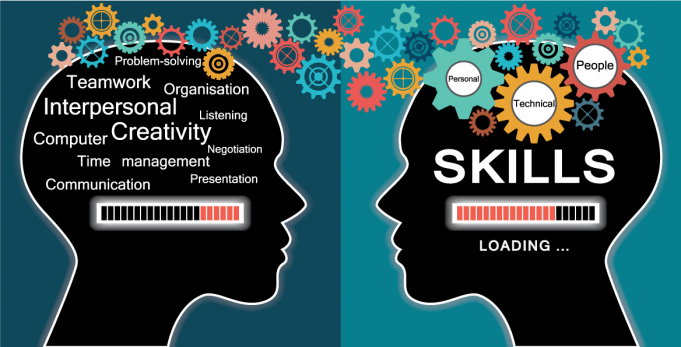Developing Good Interpersonal Skills
Interpersonal skills are all about your relationships with people. These skills are an indicator of your ability to mix with people from all walks of life.
Very often, we find that we lose out on a good opportunity in work or social interactions because of one particular person or a group. We get hurt and question ourselves about where we went wrong. Most of these failures in interacting with a group occur because of our failure to communicate effectively. We are unable to get our viewpoint across because we lack communication skills, are reluctant to express our real feelings and thoughts and are diffident about taking a strong stand. We may also go to the other extent and behave abrasively and be rigid and not accept another person’s point of view.
What is of prime importance when making a contact with another person whom you have met for the first time or a person with whom you have interacted with in your workplace or social circle is ‘active listening’.
Interpersonal skills are necessary when you are engaged in:
- Conveying ideas through verbal and non-verbal communication.
- When you are engaged in problem solving and are trying to find solutions at work, in your social interactions like the PTA or consumer groups, or at home.
- When you attempt problem solving through negotiation. When viewpoints are exchanged, understood and a compromise is reached, then you can come to an agreement by accepting another person’s solution or persuading them to accept yours. Finally, the resolution may be between these two stands.
- Both when you are a mentor and guiding somebody, or taking a lead role and helping others by setting an example or taking a decision, interpersonal skills come into play. You cannot be seen to be a tiger snarling away and terrorizing people. You have to be a lion and demonstrate that you are the king or queen of the jungle and will accept all other viewpoints too. The final decision you take has to be expressed in such a way that it is acceptable and serves the organization’s interest.
- Relationships at work and home. Empathy and teamwork in the family and workplace to achieve what is best for all the stakeholders is important for a stress-free and harmonious life.
Remember that these skills and practices need time and patience. If you sustain these skills, it will become a habit. Here are some pointers to developing interpersonal skills:
- Active listening skills are important for all conversations and dialogues.
- Let people know that you appreciate them by praising them. This acts as a motivation whether it is your child, household help, co-workers or a taxi/auto driver.
- Smiles and a positive outlook help to bridge any kind of gap in social circles or professional hierarchies.
- Body language, an important aspect of communication, includes grooming, manners and etiquette. When you stand straight and are ready to welcome somebody, the reaction is positive. Have you ever felt comfortable with slouches?
- Share a coffee or a cuppa tea with co-workers and see how they react. Bring a treat into the office occasionally and share and you will earn many brownie points.
- At home, make it a point to have a regular routine of family time to touch base with your spouse/partner, kids and parents and find out what is happening in each other’s lives!
Plan a strategy and take it one step at a time. To automatically improve your interpersonal skills, just visualize how you would like to be treated by others. Then, you will not go wrong.












































